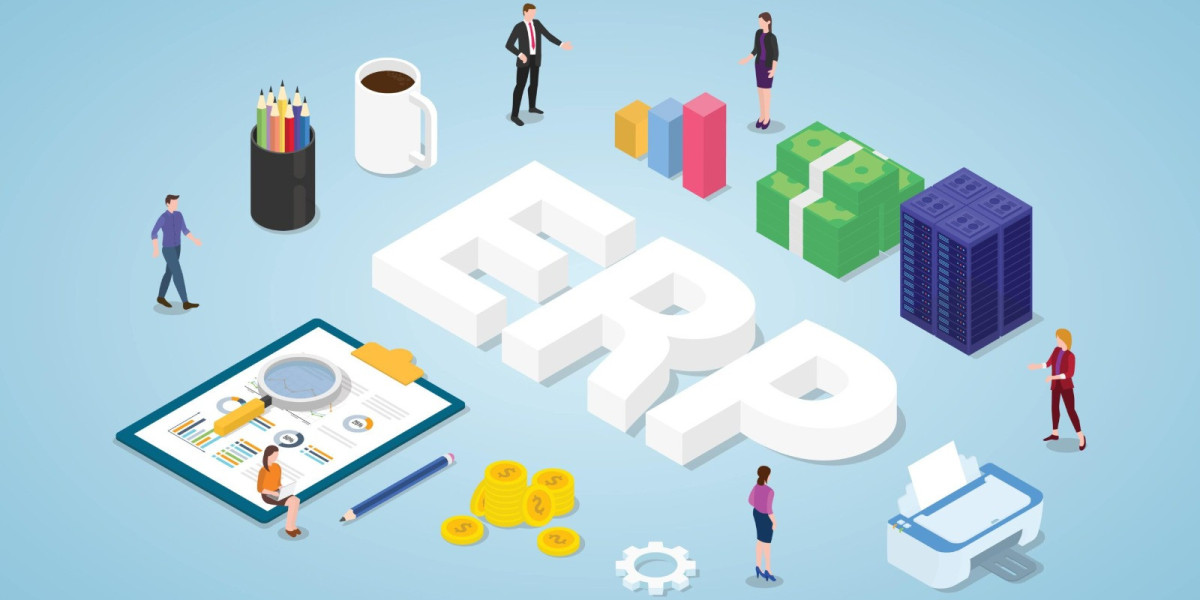The implementation of an Enterprise Resource Planning (ERP) system in educational institutes is a complex process that comes with its own set of challenges. However, the benefits of an effectively implemented ERP system can significantly improve the management and efficiency of institutes. In this article, we'll explore the challenges associated with ERP implementation in educational institutes without discussing specific real-world applications.
Understanding Institute ERP Systems
Before diving into the challenges, it's essential to have a clear understanding of what Institute ERP systems entail:
1. Comprehensive Data Management
Institute ERP systems serve as centralized platforms for managing various aspects of educational institutions, including academic data, administrative functions, and financial processes.
2. Streamlined Workflows
These systems streamline workflows by automating routine tasks, reducing manual efforts, and enhancing operational efficiency.
3. Data Analytics and Reporting
Institute ERP systems offer robust data analytics and reporting capabilities, providing valuable insights for informed decision-making and strategic planning.
Challenges of ERP Implementation
Implementing an ERP system in an educational institute is a multifaceted undertaking that presents several challenges:
1. Financial Investment
One of the primary challenges is the financial investment required for ERP implementation. This includes not only the cost of the software but also hardware, infrastructure upgrades, and staff training.
2. Resistance to Change
Institutes may face resistance from staff and faculty who are accustomed to existing processes. Overcoming this resistance and ensuring buy-in from all stakeholders is crucial.
3. Data Migration
Migrating existing data from legacy systems to the new ERP system can be a complex and time-consuming task. Ensuring data accuracy and integrity during migration is vital.
4. Customization
Customizing the ERP system to meet the specific needs of the institute can be challenging. Balancing customization with the desire to leverage standard features can be a delicate task.
5. User Training
Training staff and faculty to effectively use the new ERP system is essential. Adequate training programs need to be designed and implemented.
6. Data Security and Privacy
Protecting sensitive student and faculty data is paramount. Instituting robust security measures and ensuring compliance with data privacy regulations are crucial aspects of ERP implementation.
7. Integration
ERP systems often need to integrate with other existing systems or third-party applications, which can be complex and require careful planning.
Best Practices for Successful ERP Implementation
To overcome these challenges and ensure successful ERP implementation, educational institutes should consider the following best practices:
1. Define Clear Objectives
Clearly define the objectives and goals of ERP implementation to ensure that all stakeholders understand the expected outcomes.
2. Engage Stakeholders
Involve key stakeholders, including staff, faculty, and administrators, from the early planning stages to build support and address concerns.
3. Data Cleanup and Migration
Prioritize data cleanup and migration to ensure that data is accurate and compatible with the new system.
4. Comprehensive Training
Invest in comprehensive training programs to ensure that all users can effectively utilize the ERP system.
5. Robust Security Measures
Implement robust security measures to safeguard sensitive data and ensure compliance with data privacy regulations.
Conclusion
While ERP implementation in educational ERP for institutes is not without its challenges, it represents a significant step toward enhancing efficiency and management. This article does not discuss specific real-world applications but underscores the broader significance of ERP systems in education.
In a rapidly evolving educational landscape, institutes must embrace technology and modernize their operations to remain competitive and provide quality education. Successfully navigating the challenges of ERP implementation allows institutes to optimize their resources, streamline workflows, and improve overall effectiveness. As educational institutes continue to adapt and evolve, overcoming these challenges becomes increasingly crucial for those committed to providing a world-class education and optimizing their operations effectively.








